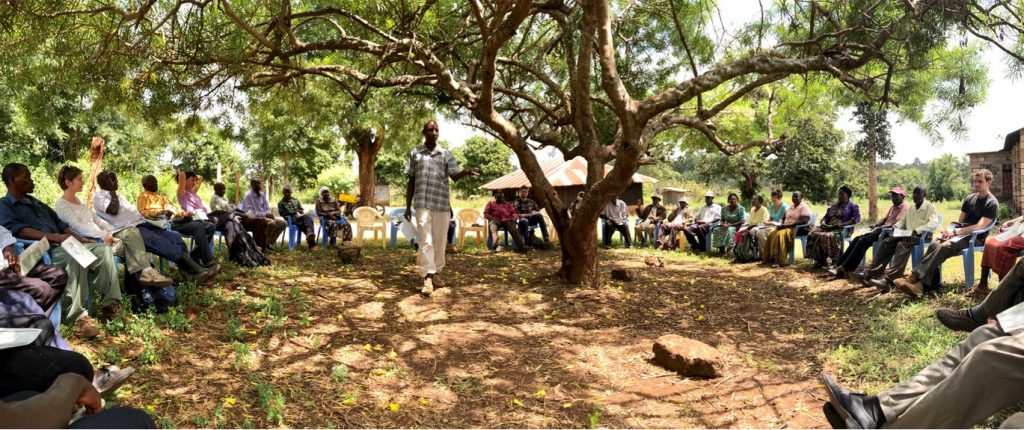Josh, Rudy and Hywel have recently published a paper analysing the impact of community-based tree planting on greening the landscape in the Mount Kenya region. You can find the work online.
Land degradation reduces the resilience of both terrestrial systems and the capacity of agricultural communities to adapt to climate change. Sub-Saharan Africa has experience extensive land degradation, this is expected to continue in the future and this will threaten the livelihoods of smallholder farmers.
For this project, we partnered with The International Small group and Tree planting program (TIST) in Kenya. TIST is a farmer-led network organised around agroforestry and regenerative farming practices, this network consists of over 100,000 members in Tanzania, Uganda, Kenya and India.
We combine Landsat-7 satellite imagery with site data from TIST farms to examine the effect of TIST tree planting in the Mount Kenya region. We identify a positive greening effect in TIST groves between 2000-2019 relative to the wider agricultural landscape. These groves cover 27,198 ha, and a further 27,750 ha of neighbouring agricultural land is also positively influenced by TIST. TIST also benefits local forests, e.g. through reducing fuelwood and fodder extraction. Our results show that community‑led initiatives can lead to successful landscape‑scale regreening on decadal timescales.


